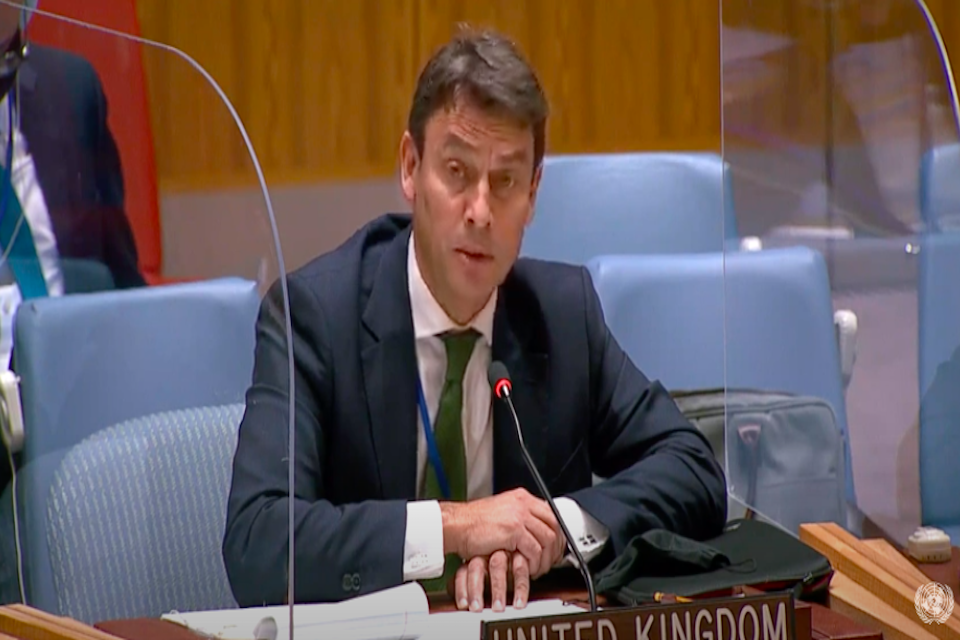The tireless work of IRMCT shows that impunity will not be allowed to prevail
Statement by Chanaka Wickremasinghe, UK Legal Counsellor at the UN, at the Security Council briefing on the International Residual Mechanism for Criminal Tribunals

Thank you, Mr President.
I would like to thank President Agius and Prosecutor Brammertz for their reports, which highlight how the International Residual Mechanism for Criminal Tribunals continues to play a crucial role in ending impunity and implementing international justice.
I would like to highlight that the Mechanism has made significant progress this year, in particular, by rendering three notable judgments.
First, it affirmed Ratko Mladić’s convictions for violations of the customs of war, crimes against humanity and the genocide at Srebrenica.
Then, in the contempt proceedings connected with Ngirabatware case, it reached convictions in relation to witness interference and violating court orders.
And finally, the Trial Chamber found Jovica Stanišić and Franko Simatović responsible for violations of the laws or customs of war and crimes against humanity. They were sentenced to 12 years of imprisonment each.
Through its tireless work, the Mechanism continues to show that impunity is not and will not be allowed to prevail. The United Kingdom is also pleased to see that, following the timely delivery of these judgments, the Mechanism has a clear plan for winding down its activities.
Mr President,
We remain grateful for the Mechanism’s ongoing efforts to progress the case of Félicien Kabuga and note that the Mechanism is still considering his fitness to stand trial. We will continue to follow closely developments in the case and would be grateful for timely updates as they arise.
We also continue to follow the case of Protais Mpiranya, a former commander of the Presidential Guard, who is believed to be in, or to have been in, Zimbabwe. We continue to call on the Government of Zimbabwe to work with the Mechanism to support investigations.
Mr President,
We call on all Member States to assist the Mechanism, and we commend the Government of Niger for its acceptance of the 9 acquitted or released persons.
However, regional judicial cooperation in parts of the Western Balkans continues to remain inadequate, which has direct implications for achieving justice for victims.
We would like to mention the Mechanism’s referral of Serbia to the Security Council, for the failure to arrest and transfer Petar Jojić and Vjerica Radeta. This continued non-compliance is serious, and follows years of requests, considerations and discussion. We urge Serbia to comply with the Mechanism’s order.
Mr President,
Last week we observed the United Nations International Day of Commemoration and Dignity of the Victims of the Crime of Genocide and of the Prevention of this Crime. However, glorification of war criminals and the denial of genocide continue. This is unacceptable and increases the suffering of the victims. We see this in many areas, including with the continuing presence in Belgrade of a mural of Ratko Mladic, a man of convicted war crimes, crimes against humanity and genocide.
Reconciliation is difficult. We must accept and acknowledge the truth of the past to move forwards. Glorifying the perpetrators and instigators of these heinous acts takes us further away from reconciliation and hinders the achievement of a positive future.
The United Kingdom will continue to condemn such denial and glorification in all its forms and calls on all Member States to do so.
Mr President,
As you have seen through our actions, the United Kingdom remains committed to the Mechanism and we reaffirm our willingness to assist it wherever possible in fulfilling its mandate and implementing its vision of being a small, temporary and effective organisation.
Thank you, Mr President.